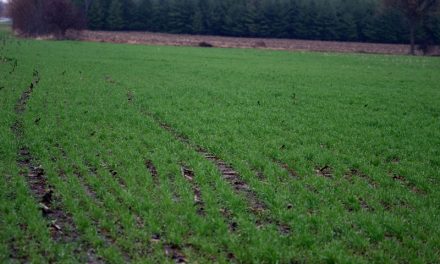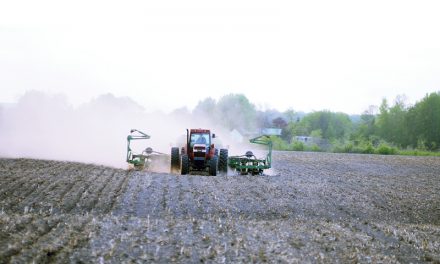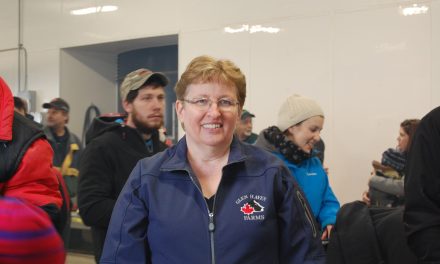by Tricia Surette
AgriNews Contributor
ONTARIO – Covid-19 is exacerbating crucial issues in the farming industry such as financial stability, isolation, and fluctuating markets causing mental health and increased stress among farmers.
The Farm Management Canada study released in May, states that 62 per cent of farmers have mid-stress scores and 14 per cent have high-stress. The study results suggest that having a farm management plan can help farmers better manage their stress levels and mental health needs.
According to Lauren van Ewyk, a registered social worker, who practices from her family’s farm in Courtright, Ontario, when farmers have a holistic plan in place that takes into consideration their mental health, they and their farms function better. Farmers make up about 75 per cent of her clientele.
“We’re on our farms and on call 24/7,” said van Ewyk. “The essence of what we need to do as farmers is to manage things so that we are looking at our entire needs and not just singularly focused on the success of our farm.”
Covid-19 is an unprecedented global event that would be hard for even the most seasoned farmers to prepare for. Some farmers are struggling to get cattle booked into abattoirs, others are struggling with lack of workers to pick and process their crops.
Isolation may be a normal part of farming, but Covid-19 has deepened those feelings with multi-generational families who rely on each other, now finding themselves having to keep their distance to protect each other. With churches, fairs and other social events cancelled, farmers are finding themselves more isolated from their physical communities too. Before, a farmer might have gone all week seeing only a few people, but Sunday they could count on catching up with friends over a cup of coffee.
And many rural communities don’t have access to high-speed internet either which makes that rural isolation even more difficult.
Anecdotally, van Ewyk reports that her clients describe unprecedented levels of debt weighing their industry down.
“You have land that is worth a lot of money,” said van Ewyk, “but when you can’t pay your combine bill and you’re juggling so much debt, it’s like the old proverb, you become a slave to the lender.”
Covid-19 is adding to the financial stress that was already there by making it harder for farmers to get their products to market, whether it be a migrant worker issue or access to facilities like abattoirs; while the government is trying to help, it falls short for many farmers.
Van Ewyk provides some tips for farmers and their families who may be struggling. She suggests focusing on the things they can control and staying grounded in the present. Anxiety is primarily worrying about the future. Unfortunately, our brains are very good at creating problems before they happen so the more a person can stay focused on what they can do right now, it can help alleviate some stress.
Van Ewyk also suggested that looking at the bigger picture can help.
“Over the course of your whole life, maybe think to yourself,” said van Ewyk, “when I’m 80 years old, what will I think back on during this time of Covid-19?”
If these tips aren’t working for you, the next step is reaching out but the stereotype of the stoic farmer is a barrier for many who seek help.
“I do believe the stigma is gradually easing with every conversation, every article, with every information package that goes out,” said van Ewyk.
Organizations like Do More Agriculture Foundation, a national charity that provides support, education and on-going research in the field of mental health and farming, is one place to start looking for support.
“Our priority is making sure we cover all bases from all angles on mental health,” said Adele Stewart, the executive director of Do More. “Having people understand what works for them and what areas of their life contribute to their mental health.”
The Ontario Federation of Agriculture’s website also offers comprehensive resources for Ontario farmers struggling with stress and mental health issues.
Farmers with a farm registration number are entitled to six discounted therapy sessions with a certified practitioner.
When van Ewyk asks her farmer clients if they’d ask their neighbours for help if they had a broken tractor or issue with bringing crops in, most of them say ‘yes, of course,’ and would gladly help their neighbours in turn.
“When it comes to mental health, we’re afraid to do that,” said van Ewyk. “You have a harder time opening up and saying ‘My combine is fine, but by golly I’m really struggling with worry.’”
The most important step is talking to somebody.











